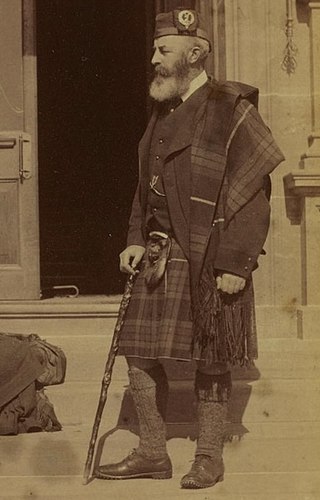Related Research Articles

James Caulfeild, 1st Earl of Charlemont KP PC (Ire), was an Irish statesman.

Viscount Charlemont is a title in the Peerage of Ireland. It was created in 1665 for William Caulfeild, 5th Baron Charlemont.

Simon Fraser, 13th Lord Lovat and 2nd Baron Lovat was a Scottish nobleman and soldier. He was responsible for overseeing the reconstruction of Beaufort Castle, and was the 22nd Chief of Clan Fraser of Lovat.

Thomas Newport, 1st Baron Torrington, styled The Honourable from 1675 until 1716, was an English barrister and Whig politician who sat in the English and British House of Commons between 1695 and 1716 when he was raised to the peerage as Baron Torrington.
John Browne, 1st Baron Kilmaine, known as Sir John Browne, 7th Baronet, from 1765 to 1789, was an Irish politician.
Colonel John Caulfeild (1661–1707), styled The Honourable from birth, was an Irish soldier and politician.
William Caulfeild, 1st Viscount Charlemont PC (Ire), was an Irish politician and peer.

James Scott, Earl of Dalkeith, KT was a Scottish nobleman and politician. He was the son of James Scott, 1st Duke of Monmouth, and Anne Scott, 1st Duchess of Buccleuch. He was also the grandson of Charles II of England, Scotland and Ireland. On 2 January 1693/94 he married Lady Henrietta Hyde, daughter of Laurence Hyde, 1st Earl of Rochester, and Henrietta Hyde, Countess of Rochester. They had six children:
- Francis Scott, 2nd Duke of Buccleuch married (1) Lady Jane Douglas (2) Alice Powell
- Anne
- Charlotte
- Charles
- James
- Henry
James Molyneux Caulfeild, 3rd Earl of Charlemont KP was an Irish politician and peer.

Francis William Caulfeild, 2nd Earl of Charlemont KP, PC (Ire), styled Viscount Caulfeild until 1799, was an Irish peer and politician.
Sir Ralph Gore, 2nd Baronet was an Anglo-Irish politician, soldier and baronet.
William Flower, 1st Baron Castle Durrow PC (Ire) was an Anglo-Irish peer and politician.
Francis Bernard, 1st Earl of Bandon was an Irish peer and politician.
James Bernard was an Irish politician and ancestor of the Earls of Bandon.
Sir Tristram Beresford, 3rd Baronet was an Irish politician and baronet.
John Eyre, 1st Baron Eyre, was an Irish politician.
James Macartney was an Irish lawyer, judge and politician, notable mainly for presiding at the Islandmagee witch trial of 1711, which was apparently the last such trial in Ireland.
The Custos Rotulorum of County Armagh was the highest civil officer in County Armagh, Ireland. The position was later combined with that of Lord Lieutenant of Armagh.
James Caulfeild Browne, 2nd Baron Kilmaine was an Anglo-Irish Member of Parliament and landowner. He sat in the House of Commons of Ireland in 1790.
James Caulfeild, 3rd Viscount Charlemont was an Anglo-Irish politician and peer.
References
- 1 2 3 "Leigh Rayment - Irish House of Commons 1692-1800". Archived from the original on 1 June 2009. Retrieved 28 March 2009.
{{cite web}}: CS1 maint: unfit URL (link) - ↑ "ThePeerage - Francis Bernard" . Retrieved 28 March 2009.[ unreliable source ]
- 1 2 3 4 Burke, John (1832). A Genealogical and Heraldic History of the Peerage and Baronetage of the British Empire. Vol. I (4th ed.). London: Henry Colburn and Richard Bentley. p. 74.
- ↑ Haydn, Joseph (1851). The Book of Dignities: Containing Rolls of the Official Personages of the British Empire. London: Longman, Brown, Green and Longman's. pp. 455.
- 1 2 Lodge, Edmund (1838). The Genealogy of the Existing British Peerage (6th ed.). London: Saunder and Otley. pp. 37.
- ↑ "ThePeerage - James Bernard" . Retrieved 28 March 2009.[ unreliable source ]
- 1 2 Ball, F. Elrington "The Judges in Ireland 1221-1921" London John Murray 1926 p.117